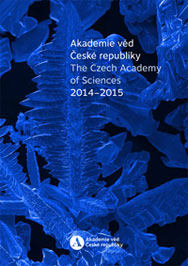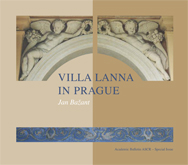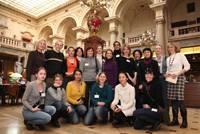Unique collection of wine has been put at 20 million Kč
31 Dec 2014
 After the St Maurus reliquary, that is a national cultural monument and one of the greatest treasures of the Czech Republic, the Bečov castle takes pride in unique collection of 136 bottles of wine, cognac and Champagne that mostly originate from the 1890s. The value of old bottles that were uncovered together with the medieval St Maurus reliquary in the Bečov nad Teplou castle in 1985 has been put at 20 million Kč. Many bottles in collection have preserved labels therefore, it can be determined not only the origin but also the concrete wine grower who produced the wine and the dealer who sold it. Each bottle has a value of minimum 200,000 Kč and it is probably the most valuable find of wine in the Czech Republic. The treasure is kept in a special depository at the Bečov castle.
After the St Maurus reliquary, that is a national cultural monument and one of the greatest treasures of the Czech Republic, the Bečov castle takes pride in unique collection of 136 bottles of wine, cognac and Champagne that mostly originate from the 1890s. The value of old bottles that were uncovered together with the medieval St Maurus reliquary in the Bečov nad Teplou castle in 1985 has been put at 20 million Kč. Many bottles in collection have preserved labels therefore, it can be determined not only the origin but also the concrete wine grower who produced the wine and the dealer who sold it. Each bottle has a value of minimum 200,000 Kč and it is probably the most valuable find of wine in the Czech Republic. The treasure is kept in a special depository at the Bečov castle.
Monograph Villa Lanna in Prague available for foreign readers
10 Dec 2014
Villa Lanna in Prague is one of the architectural jewels of the Academy of Sciences of the Czech Republic. Last year, the editorial staff of Academic bulletin prepared a Czech supplement for the Academy’s official magazine which recognized the importance of the villa by publishing detailed imagery of the interiors and scientific article devoted to its interesting history of the building and offered a private view into a life of one of the most renowned philanthropist of arts of the end of 19th century in the Austria-Hungary Empire.
Call for Applications SozialMarie 2015
19 Nov 2014
 SozialMarie is the oldest prize for social innovation in Europe and honours since 2005 every year 15 outstanding projects in the field of social innovation. Beyond a financial recognition adding up to 54,000 Euros, SozialMarie primarily offers a public platform for projects that by means of new approaches provide innovative answers to societal challenges. The application period 2015 starts on Monday 10th of November 2014. Complete application form must be submitted online on SozialMarie’s website on 27th of January 2015 at 24:00 at the latest. More information http://www.sozialmarie.org/.
SozialMarie is the oldest prize for social innovation in Europe and honours since 2005 every year 15 outstanding projects in the field of social innovation. Beyond a financial recognition adding up to 54,000 Euros, SozialMarie primarily offers a public platform for projects that by means of new approaches provide innovative answers to societal challenges. The application period 2015 starts on Monday 10th of November 2014. Complete application form must be submitted online on SozialMarie’s website on 27th of January 2015 at 24:00 at the latest. More information http://www.sozialmarie.org/.
Poland to Join the European Southern Observatory
29 Oct 2014
The Polish Minister of Science and Higher Education Professor Lena Kolarska-Bobińska and ESO’s Director General Tim de Zeeuw signed an agreement (28 October 2014) that will lead to the country joining the European Southern Observatory (ESO) — the world’s most productive ground-based observatory. Since this agreement means accession to an international treaty, it must now be submitted to the Polish Parliament for ratification. The signing of the agreement followed its unanimous approval by the ESO Council during an extraordinary meeting on 8 October 2014.
New members for the International Selection Committee of the Millennium Technology Prize
24 Oct 2014
 In its meeting on October 14, 2014, the Board of Technology Academy Finland decided to appoint two new members to the International Selection Committee of the Millennium Technology Prize. The new members are Professor Sir Peter Knight from Imperial College London, and Research Professor Merja Penttilä from Technical Research Centre of Finland VTT. The appointment of new members is made at the presentation of the Aalto University, the strategic partner of TAF with the Millennium Technology Prize.
In its meeting on October 14, 2014, the Board of Technology Academy Finland decided to appoint two new members to the International Selection Committee of the Millennium Technology Prize. The new members are Professor Sir Peter Knight from Imperial College London, and Research Professor Merja Penttilä from Technical Research Centre of Finland VTT. The appointment of new members is made at the presentation of the Aalto University, the strategic partner of TAF with the Millennium Technology Prize.
Discovery of the Benešov meteorites 20 years after the bolide event
14 Oct 2014
Astronomy & Astrophysics has recently published the spectacular discovery of meteorite fragments 20 years after the corresponding bolide has been seen in the skies of the Czech Republic. This discovery was made possible by reanalysing the trajectory, which moved the impact line by 330 meters. Interestingly, the meteorites found on the ground are of different types, pointing to a parent asteroid of heterogeneous composition.
1989: Thinking Revolution in East-Central Europe
7 Oct 2014
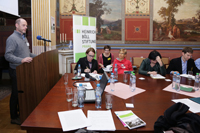 International conference organized by the Department for the Study of Late Socialism and Post-Socialism of the Institute of Contemporary History of the ASCR and the Department for the Study of Modern Czech Philosophy of the Philosophy Institute of the ASCR was held October 2–3, 2014 at Villa Lanna in Prague. 1989 was a year of democratic revolutions and the fall of “real socialism” in Central Europe. Did it signal the end of revolutionary regimes and the beginning of a “restoration,” or rather the replacement of worn-out communist revolutions with a new, neoliberal revolution? Or, considering the nonviolent character of the events, did they really constitute a revolution at all?
International conference organized by the Department for the Study of Late Socialism and Post-Socialism of the Institute of Contemporary History of the ASCR and the Department for the Study of Modern Czech Philosophy of the Philosophy Institute of the ASCR was held October 2–3, 2014 at Villa Lanna in Prague. 1989 was a year of democratic revolutions and the fall of “real socialism” in Central Europe. Did it signal the end of revolutionary regimes and the beginning of a “restoration,” or rather the replacement of worn-out communist revolutions with a new, neoliberal revolution? Or, considering the nonviolent character of the events, did they really constitute a revolution at all?
Hydrogen powers important nitrogen-transforming bacteria
1 Sep 2014
 Nitrite-oxidizing bacteria are key players in the natural nitrogen cycle on Earth and in biological wastewater treatment plants. For decades, these specialist bacteria were thought to depend on nitrite as their source of energy. An international team of scientists led by Holger Daims, a microbiologist at the University of Vienna, has now shown that nitrite-oxidizing bacteria can use hydrogen as an alternative source of energy. The oxidation of hydrogen with oxygen enables their growth independent of nitrite and a lifestyle outside the nitrogen cycle. The study is published in the current issue of the journal "Science".
Nitrite-oxidizing bacteria are key players in the natural nitrogen cycle on Earth and in biological wastewater treatment plants. For decades, these specialist bacteria were thought to depend on nitrite as their source of energy. An international team of scientists led by Holger Daims, a microbiologist at the University of Vienna, has now shown that nitrite-oxidizing bacteria can use hydrogen as an alternative source of energy. The oxidation of hydrogen with oxygen enables their growth independent of nitrite and a lifestyle outside the nitrogen cycle. The study is published in the current issue of the journal "Science".
Bolzano in Prague 2014
8 Aug 2014
 International symposium (16th – 19th July, Villa Lanna) brought together 35 participants from 13 countries to hear and discuss presentations on the life and work of one of the foremost European philosophers of the nineteenth century, Bernard Bolzano. Most of the 30 talks given were on philosophy but mathematics and theology were also well represented. More than a quarter of the participants were research students. Several news items drew attention to recent developments in Bolzano studies – in May we saw the complete English translation of Bolzano’s major work Wissenschaftslehre (Theory of Science). This year has seen almost three-quarters of the129 volumes of the Bernard Bolzano Gesamtausgabe appearing in print. The programme and other details of the meeting can be found at bolzano2014.wordpress.com. The meeting enjoyed generous sponsorship, participants were enthusiastic in their appreciation of it, and details of how presentations and papers will be disseminated will appear in due course.
International symposium (16th – 19th July, Villa Lanna) brought together 35 participants from 13 countries to hear and discuss presentations on the life and work of one of the foremost European philosophers of the nineteenth century, Bernard Bolzano. Most of the 30 talks given were on philosophy but mathematics and theology were also well represented. More than a quarter of the participants were research students. Several news items drew attention to recent developments in Bolzano studies – in May we saw the complete English translation of Bolzano’s major work Wissenschaftslehre (Theory of Science). This year has seen almost three-quarters of the129 volumes of the Bernard Bolzano Gesamtausgabe appearing in print. The programme and other details of the meeting can be found at bolzano2014.wordpress.com. The meeting enjoyed generous sponsorship, participants were enthusiastic in their appreciation of it, and details of how presentations and papers will be disseminated will appear in due course.
Professor Olga Hudlická passed away
6 Jun 2014
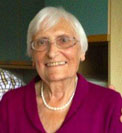 It is with deep sadness we inform you of the sudden passing of Professor Olga Hudlická. Born in Prelouc, Czechoslovakia, Olga received her MD from Prague’s Charles University in 1950, then her PhD (1954) and DSc (1968) in the Institute of Physiology, Czechoslovak Academy of Sciences working on muscle blood flow and its regulation under different conditions. She was inspired by the pioneering work of Ernest Gutmann working in his laboratory alongside another important figure in UK Physiology, her lifelong friend Gerta Vrbova. In 1969 the political situation forced her to leave her beloved country and emigrate to England, where she remained in the Department of Physiology at the University of Birmingham until retirement in 1993.
It is with deep sadness we inform you of the sudden passing of Professor Olga Hudlická. Born in Prelouc, Czechoslovakia, Olga received her MD from Prague’s Charles University in 1950, then her PhD (1954) and DSc (1968) in the Institute of Physiology, Czechoslovak Academy of Sciences working on muscle blood flow and its regulation under different conditions. She was inspired by the pioneering work of Ernest Gutmann working in his laboratory alongside another important figure in UK Physiology, her lifelong friend Gerta Vrbova. In 1969 the political situation forced her to leave her beloved country and emigrate to England, where she remained in the Department of Physiology at the University of Birmingham until retirement in 1993.
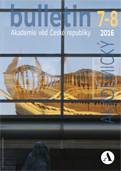

 Česky
Česky


